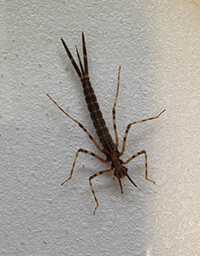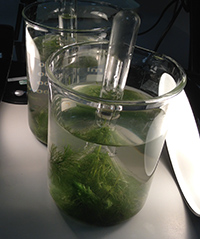Environment
Key Stage: KS1
Experiment: Pond Dipping
Duration: 2 hours/Half day (to suit)
Description: The activity takes place at our pond here at Gibbet Hill - or the School’s own habitat. All equipment and resources are provided but children will need to bring appropriate outdoor clothing. We collect and identify in the field/pond, bring samples back to the class/laboratories, provide stereo dissection microscopes to visualise findings up close and observe the adaptations of the creatures and the plants.
Key Stage: KS2
Experiment: Pond Dipping
Duration: 2 hours/Half day (to suit)
Description: As above for KS1. We also demonstrate how to collect other mini beasts – tardigrades/nematodes and view under larger compound microscopes.
Key Stage: KS1
Experiment: Mini Beasts
Duration: 2 hours/Half day or full day in conjunction with pond dipping experiments
Description: Mini Beasts is similar to the Pond Dipping experiments above, except we use the Tocil woodland paths at Gibbet Hill. This activity includes, observations, animal tracking, plant/tree identification (time of year dependent). Again, we bring samples back to the laboratory for viewing under microscopes.
Key Stage: KS1 & Lower KS2
Experiment: World of Plants
Duration: 2 hours/Half day (to suit)
Description: We demonstrate the production of oxygen from pond-weeds by collecting and setting fire to the gas produced. We demonstrate adaptations – why do some trees lose their leaves? How do conifers survive the snow?
How come some plants can live in a desert?

Damsel fly nymph

Production of oxygen from pond weed
